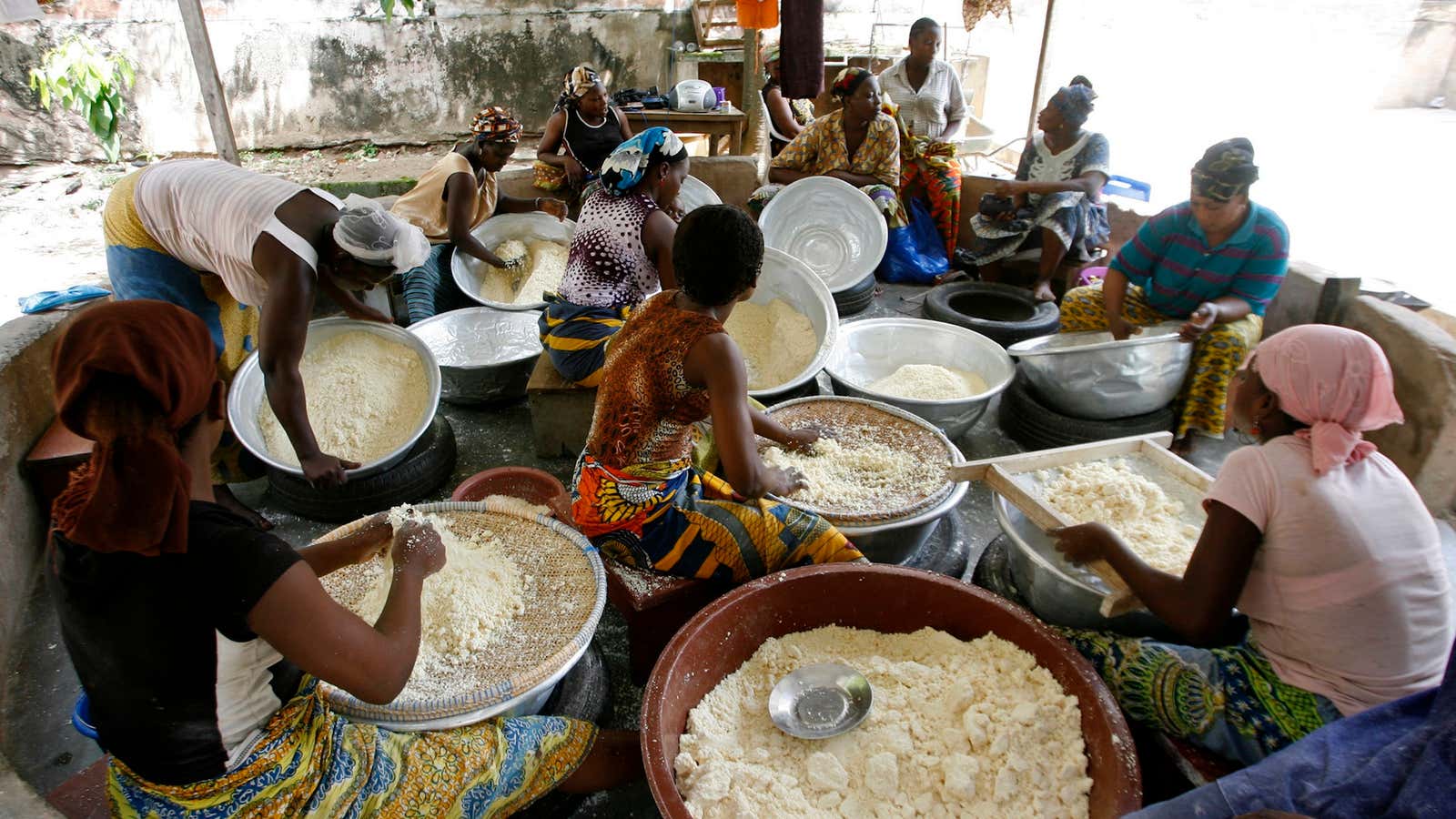The government of Ivory Coast is seeking protected status over its popular cassava dish, attiéké. According to Bruno Kone, spokesman for the ministry of industry, the government has applied with the African Regional Intellectual Property Organisation for legal protections over the use of the name of the dish.
Similar to champagne in France, parma ham in Italy, or Kobe beef from Japan, gaining protected status for attiéké would prohibit the use of the dish’s name by those who don’t follow the traditional method or who produce it outside of the Ivory Coast.
“Because of its renown, this food is increasingly being produced outside the country and marketed using the same name by countries which only partly follow the (correct) production process,” Kone told the newswire AFP.
The couscous-like staple, pronounced “atchekay,” made from grated cassava and fermented over the course of several days, is popular throughout francophone Africa and among the African diaspora. Frozen or dried attiéké is sold in African food shops in Europe, the US, and according to Kone, Southeast Asia.
And in a country home to 62 different ethnic groups, attiéké is the closest thing Ivory Coast has to a national dish. For most Ivorians attiéké accompanies meat, fish or vegetables during breakfast, lunch, or dinner.
Only three African commodities, Oku honey and the Penja peppercorn from Cameroon, as well as Ziama Macenta coffee from Guinea have been given this protected geographical indication label.
